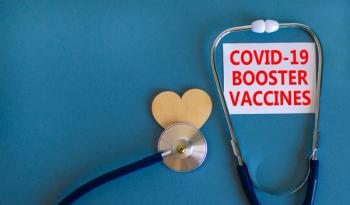
Less Nursing Home Residents, Staff Are Up-to-Date on Covid Vaccinations Amid Winter Surge
Less than half (45%) of all nursing facility residents and less than a quarter of staff (22%) are up to date with their COVID-19 vaccinations. That is a sharp drop from the 87% of nursing facility residents and staff who completed their primary vaccination series.
During a time where most should be updated on all of their COVID-19 vaccinations, it turns out a good chunk of nursing home residents and its staff are are falling short.
According to a new
This analysis shares data of nursing facility residents and staff who are up-to-date with their COVID-19 vaccines as of the week ending November 20th, 2022, in the 14,400 nursing facilities that reported data (out of 15,200 total).
The weekly number of COVID cases as of December 7 reached 458,986. Typically, every winter/flu and cold season there is a surge of cases, so it is best to be prepared. However, this time last year there was much more cases rounding around almost 839,000. Though by mid-January 2022, cases about doubled to its highest peak this year at 5.6 million.
In the week ending November 20th, 2022, the death rate among nursing facility residents was at 19 deaths per 100,000; though in 2021, there was a spike in deaths following the holidays. Specifically, the death rate went from 35 deaths per 100,000 in mid-November 2021 to 131 deaths per 100,000 in mid-January 2022.
That spike raises concerns about the potential for a similar spike in preventable deaths among nursing home residents in the upcoming post-holiday season.
Today, the U.S. Centers for Disease Control and Prevention (CDC) reports that 13.5% of people 5 years and older in the U.S. have had an updated booster dose this week, with 42 million overall who are up-to-date.
The CDC now defines being up to date as “having received a bivalent booster or having received a final shot of the original vaccines less than two months ago.”
Federal vaccine clinics and healthcare worker vaccine mandates contributed to high initial vaccination rates among nursing facility residents and staff ahead of the decline. But without ongoing federal initiatives, fewer people may stay up to date with their vaccines.
The amount of residents who are up to date ranged from 73% in South Dakota to 24% in Arizona. Among nursing home staff, the share ranged from 48% in California to 10% in Alabama.
This is concerning because people in nursing facilities are at higher risk of having worse outcomes if infected with COVID-19 and
Keeping nursing facility residents and staff current on their vaccines is an important tool for reducing deaths from COVID-19 and especially important this holiday season when risks may be compounded by high rates of other respiratory viruses. Public health
The high take-up rate of the primary vaccine series reflects several factors, including the high death rates among nursing facility residents and the focus on nursing facility residents during the initial vaccine roll-out. Higher take-up rates in 2021 are also attributable to the three on-site vaccination clinics held at all long-term care facilities participating in the Federal Pharmacy Partnership for Long-Term Care Program.
Facilities are still able to request additional clinics, but it’s unclear how many facilities are doing so or how many pharmacy partners continue to participate. Among nursing facility staff, initial take-up of COVID-19 vaccines was low until the healthcare worker vaccination mandate required providers that participate in Medicare and/or Medicaid to be vaccinated. The vaccine mandate does not require boosters, so booster take-up among staff may remain low.
Creating new opportunities for on-site vaccinations and updating the healthcare worker vaccination mandate to reflect current CDC guidance could increase the number of nursing facility residents and staff who are up-to-date with their COVID-19 vaccinations and decrease preventable deaths, the analysis said.
More generally, without continued communication and education, there may be more people who are vaccinated and boosted but not “up-to-date” as
Newsletter
Get the latest industry news, event updates, and more from Managed healthcare Executive.























